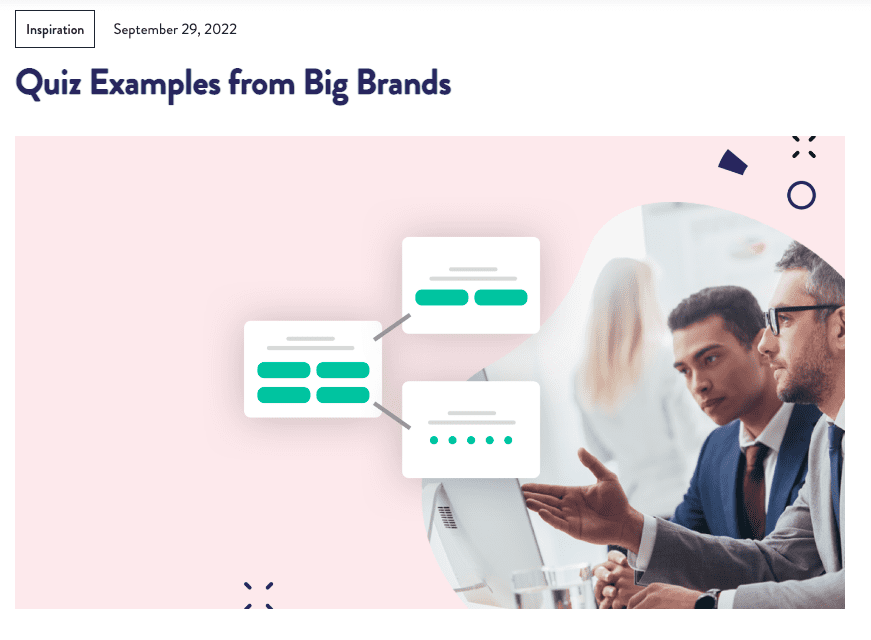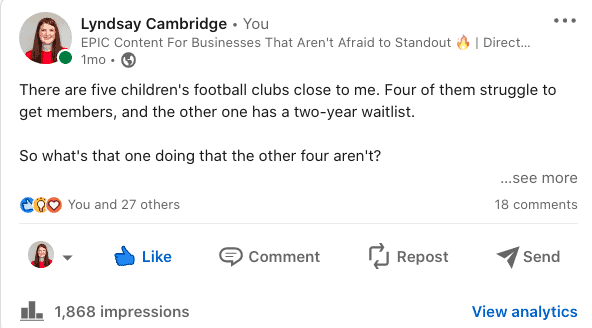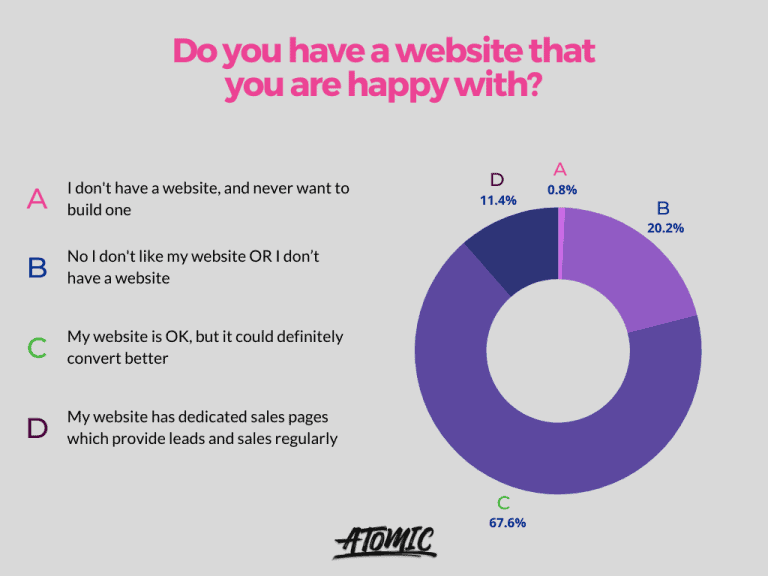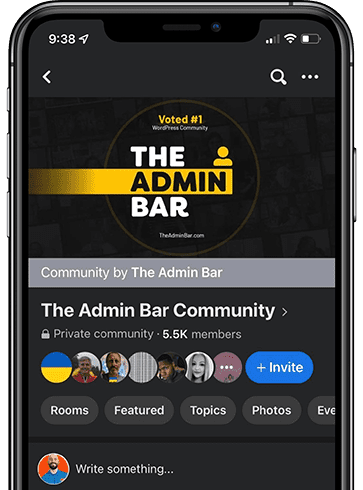Unless you’ve been hiding under a rock, you’ll notice that everyone is talking about ChatGPT at the moment.
Just look in The Admin Bar 👀
But aside from the fact that it’s unbelievably difficult to pronounce, just listening to the conversations around it makes it sound like the best thing since sliced bread.
Apparently, ChatGPT will create all of our written content for us. And you’re probably thinking, could it even write my clients’ website copy so I can finally get their website live?
TAKE. MY. MONEY!
But let’s be real for a moment.
The launch of ChatGPT is exciting. But that doesn’t mean we can rely on this tool to create all our content going forward.
We’re about to see an avalanche of AI-based content on the Internet, so how on earth will you differentiate yourself if you do what everyone else is doing? How will your prospective clients notice you and pick you?
This is your opportunity to create something different and original, so you can stand out and build your brand.
We aren’t bashing AI at all, by the way. But it’s important we recognise it can’t do everything for us.
So let’s have a look at this AI thing and see what we can do going forward when it comes to our content creation.
First up, what can’t AI do?
The first thing AI can’t do is think. *Goes to see if it’s reached Skynet levels of awareness yet.
So unless you give it specific instructions on exactly what to go and find for you, it won’t be able to produce much. And creating the right prompts to get the software to generate great content isn’t as easy as it may seem.
Plus, AI tools create copy based on information that’s already in existence. They pull content and data from articles, books, and various types of resources. But that means the content produced by AI is based on concepts, ideas, or facts that are already out there.
What you want to do instead is to find ways to create content that is new and original.
Now, we’re not saying that all content should always have 100% brand-new ideas. Is that even possible? But you definitely want to aim for originality – something that’s uniquely yours and reflects your agency and brand.
Because without that, you’ve got the same cookie-cutter content as everyone else. You know how you can spot a Squarespace template from a mile off? Well, it can be the same with AI-generated content. If you use a tool that emulates everyone else, you say the exact same thing as everyone else. You don’t stand out.
So here are some ways you can do that.
How to create new and original content to make you stand out
1. Use specific examples
When you ask AI to provide you with examples, particularly about things like website design, the tool will always pull out big-name brands such as Apple, Dropbox, Stripe, Google, and other famous, world-renowned websites.
Instead, you’re going to want to choose unique examples that you may have come across while doing your own research.
You want websites, brands, and businesses that your target audience can connect with and find relatable.
Sure, we know the huge international brands are doing great for themselves, but their businesses are different and so is the scale at which they operate. Your clients may be after something completely different. So maybe use examples of your own clients and past work – that will not only be unique but also showcase your skills and demonstrate what you can do for your prospective clients.
For example, quiz software ScoreApp, often uses examples to help teach their audience how to use their software.

2. Use client success stories (framed in an educational way)
What’s more unique than sharing the success stories of your own clients? No AI can replicate that because only you have the specific experience of working with that client to create their ideal website. So tap into that type of knowledge when creating your content.
For example, you could share a step-by-step process on how to maintain rankings during a website redesign.
Sure, AI software could generate something for you there, but if you’re using one of your clients as a case study (even adding screenshots and concrete examples), you’ve automatically produced something unique that no tool could ever come up with. And while the topic may have been covered before, the angle you give it is completely original and unique to your brand.
For example, Facebook Ads strategist, Jo Francis does this with her blog post all about how to gain 1000 new email subscribers with a budget of £110.00. Of course, she’s talking about a result she got her client, and walks you through the steps she took throughout the process.
3. Use storytelling in your copy and content
As we all know, storytelling is a great technique to include in all our content. It makes it more engaging, relatable, and memorable.
The problem is, AI is not great at telling stories, particularly from, ya know, actual events that have happened in your life.
Now, I know storytelling sounds tricky, and it can hold people back from creating awesome content, so keep things simple. Telling a story could be as easy as mentioning a client who called you up to ask you a question, which prompted you to write a particular piece, including things like:
- What sort of issue was the client experiencing when they gave you a call to ask for help?
- How were they feeling?
- And how were you able to help?
By including these kinds of stories in your content, you’re helping more of your audience by sharing your answer at scale, while doing it in a way that’s completely unique to your business.
For example, on LinkedIn, my best-performing posts (i.e. the ones that actually get me sales) often use stories. It could be as simple as using something in real life and relating it to what your audience is interested in…

4. Talk about how your specific products or services work
Something a lot of businesses don’t do enough of is create content around their specific products and services. And if you’re not doing this, you’re definitely missing a trick!
A big part of our roles as content creators is to educate our audience on what we do so they can self-qualify before they take up a lot of our time. Are you the right service provider for them? Do you even offer what they’re after? They won’t know unless you create in-depth content around what it is you do.
So here you’ll want to think along the lines of:
- How much do you charge for your services or packages and why?
- What does working with you look like? What’s the process (step-by-step) from beginning to end? What can a client expect when working with you? How much time will they need to invest, and what will they need to prepare?
- Who are your ideal clients? Who are you right for, and who are you not right for?
It may sound counterproductive to share this type of information with your prospective clients, but it will help you in the long run. Because you’ll attract more of the clients you want to work with and repel the ones who aren’t right for your business.
So talk about your business and what you do. Because AI tools can’t do that for you.
For example, here’s a blog post about why we’re raising our prices for our content writing service. And nope, AI cannot replicate this kind of content (because they don’t know what we’re thinking!), but it’s hugely beneficial for those who are considering buying from us–and yes, people did buy following this blog post.

5. Use original research
Let’s face it – tools such as ChatGPT do amazing when it comes to creating research-style content. They can pull information from a broader variety of sources in a much quicker way than you’ll ever be able to do.
But will that content really stand out in the eyes of your audience? Or will it all sound great and helpful, but a bit… samey? As businesses, we need to grab the attention of more customers, so think about ways to create original research – something that’s not out there yet.
This may sound tricky (how do you come up with the ideas, after all?), but it doesn’t have to be hard. It could be something as simple as picking the top 20 websites in your niche for different criteria and evaluating them based on your findings. You could even share your own suggestions for areas of improvement. And that will be uniquely you – showing off your expertise, knowledge, and experience.
And you know what’s even better? Once you’ve created this piece of research, your content will be out there for AI tools to tap into when generating new articles for others! And that’s great news for you because you’ve now become a source. Other people will mention you, and you might even get a backlink or two for all your hard work!
So, in the end, you’re winning twice – you’re standing out for being original and also for being a thought leader in your industry that others look up to. Not bad, eh?
A bloody brilliant example of this, of course, is Kyle and Matt from Admin Bar with their annual Agency Survey – don’t tell me that ChatGPT can create this amazing piece of research!
Another fab example is from Andrew and Pete at ATOMIC. They surveyed over 1000 small business owners, looking at what they’re struggling with right now. FYI, they also found that 88% of business owners don’t get leads and sales from their websites!

6. Use personal experience or lessons learnt
As things stand, AI tools cannot plug into your brain and pull out information directly from there. (And boy, won’t it be scary if and when that happens?) So to create original content and copy, focus on using your own personal experience.
- What can your experience add?
- What did you learn from it?
- And what can the prospective clients in your audience learn from you?
As long as the experience is relevant and appropriate and it helps you prove a point, go into detail. You’ll end up with a great piece of content that you can definitely enhance with AI, but that will be completely unique to you and your brand.
For example, in this entire podcast from Kyle and Matt, they discuss whether formal education is needed or advantageous if you want to run a web agency. They draw from their own experiences for the entire episode, and it makes the content so much more relatable.
So what’s next for your content creation process and AI?
With more and better AI tools coming onto the scene, in order to stand out as a brand you need to create the kind of content that establishes you as the leader in your industry.
If your content only adds to the noise, it’s not going to work. So think about what you can do to set yourself apart from your competitors. Otherwise, you’ll get lost in a world soon to be flooded with lots of AI content!
You can definitely use AI tools to your advantage to speed up your content creation process, do more in less time, and repurpose content to make it work harder for you and reach a wider audience.
But if you’re thinking of copying and pasting from whatever AI software such as ChatGPT gives you, you’ll be doing it all wrong!






